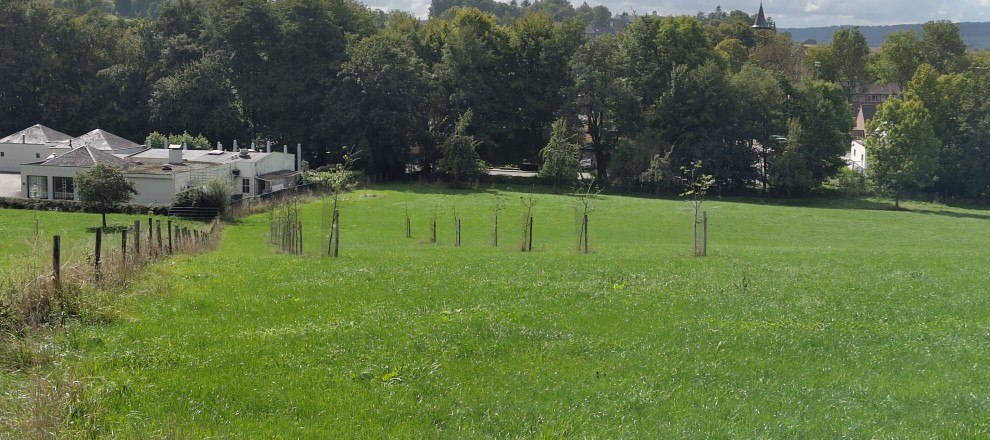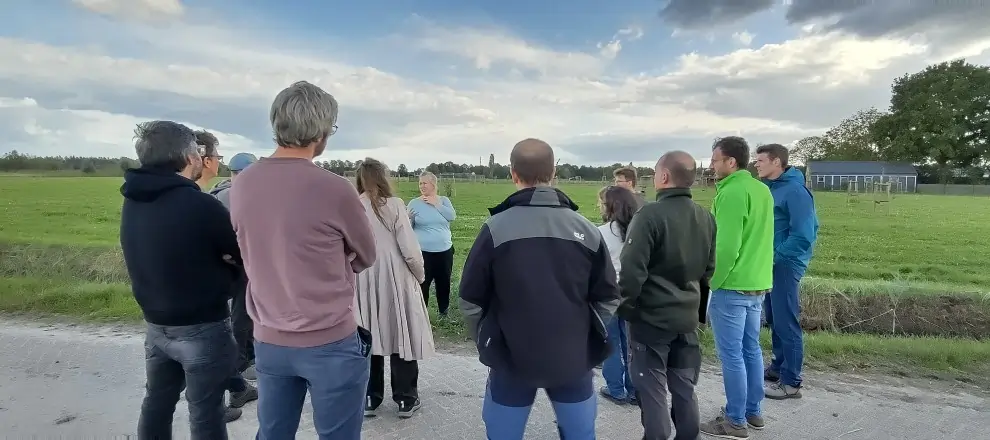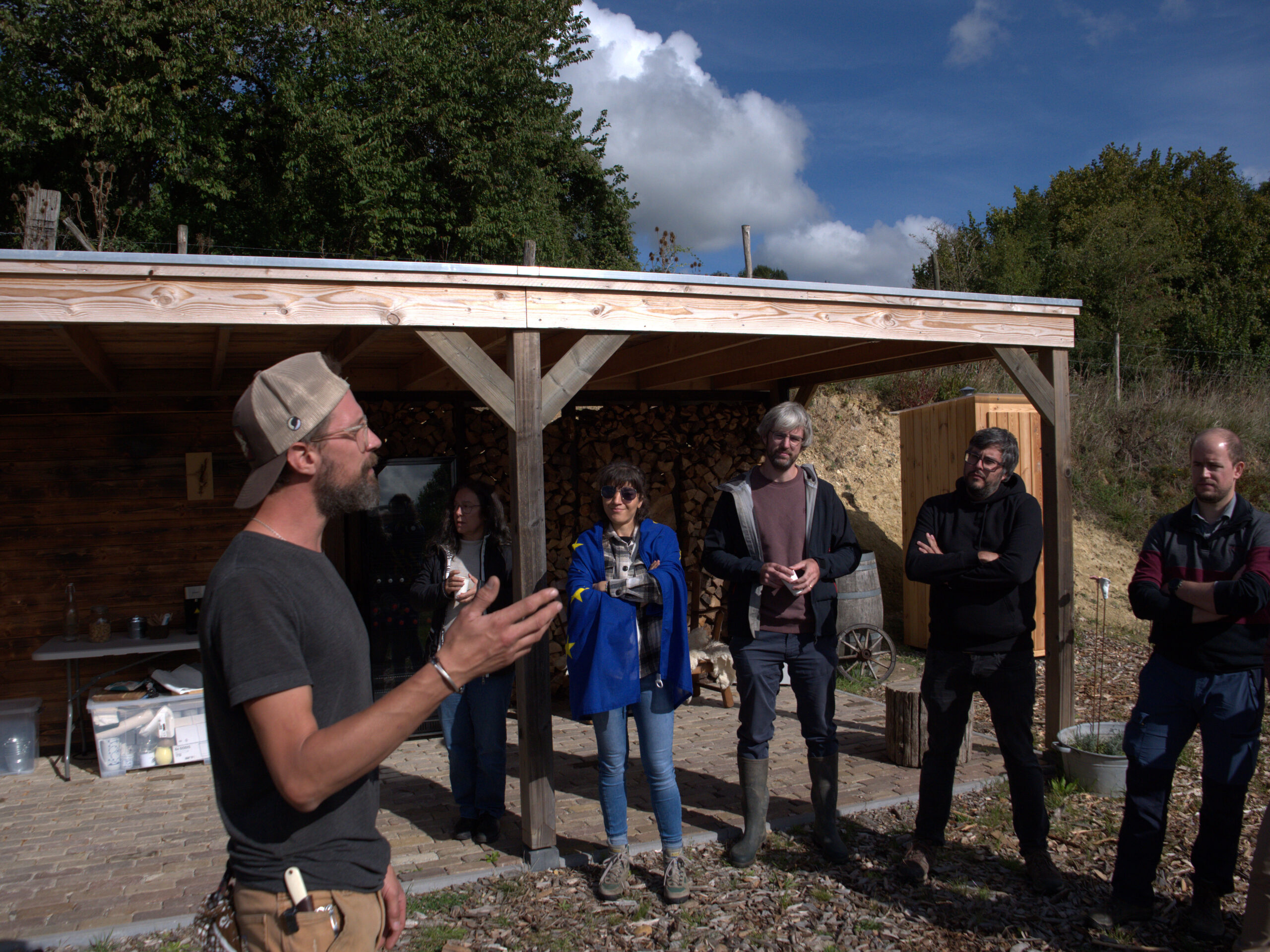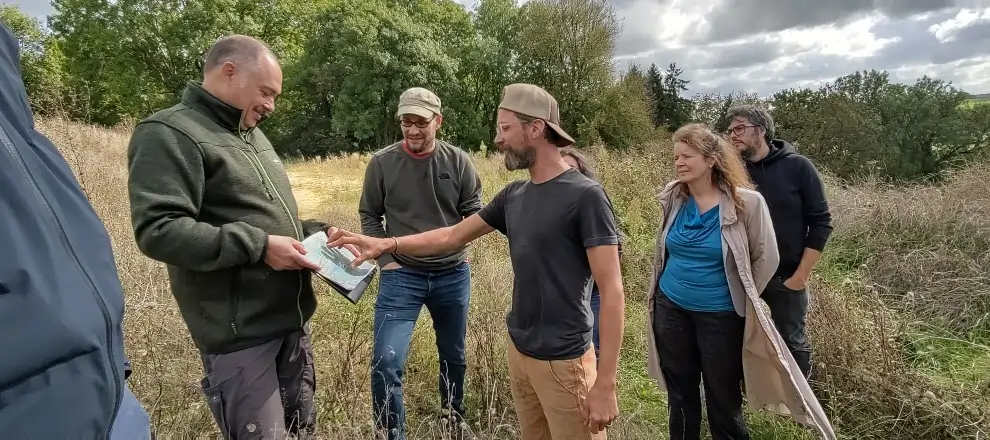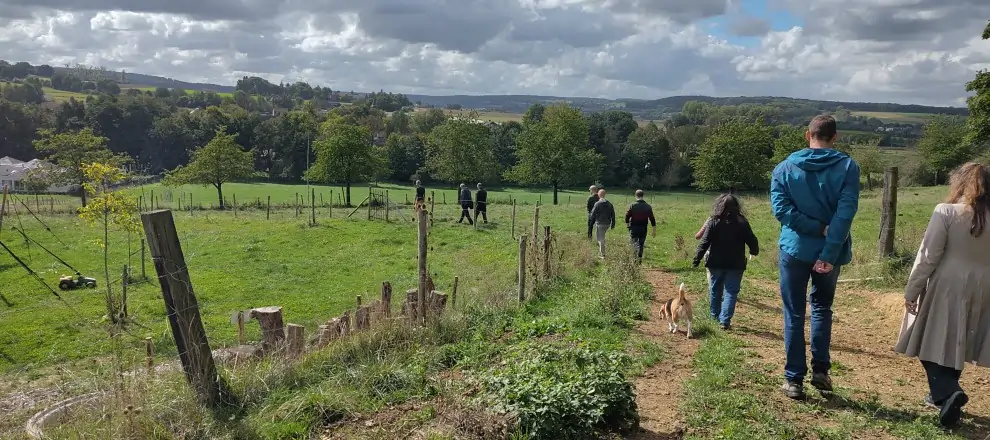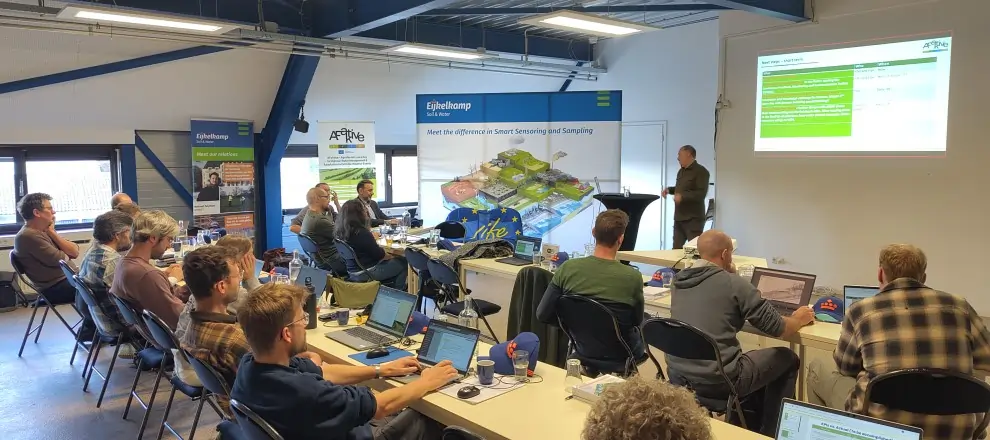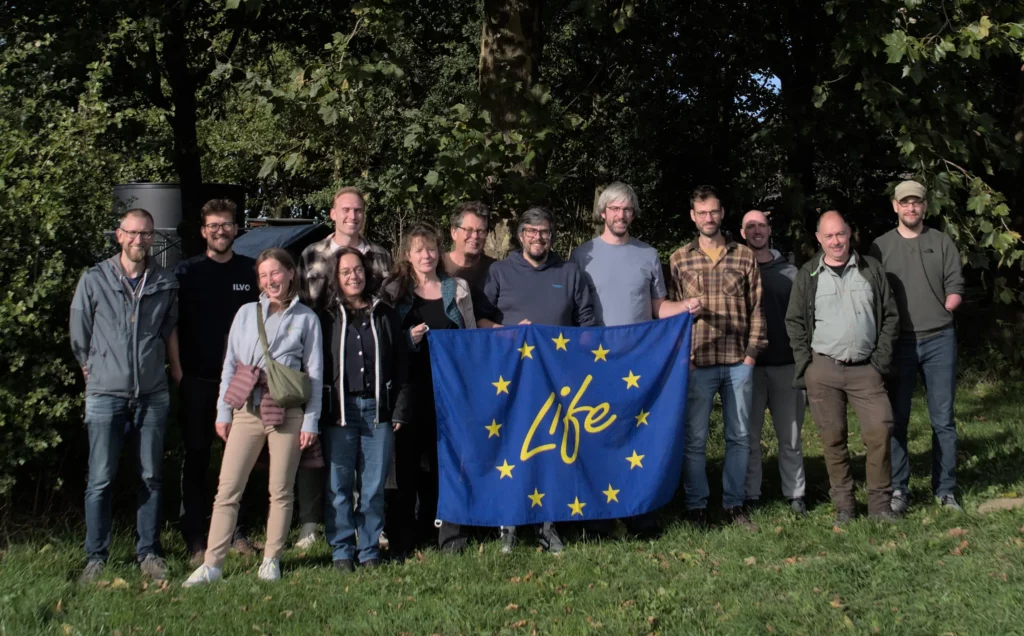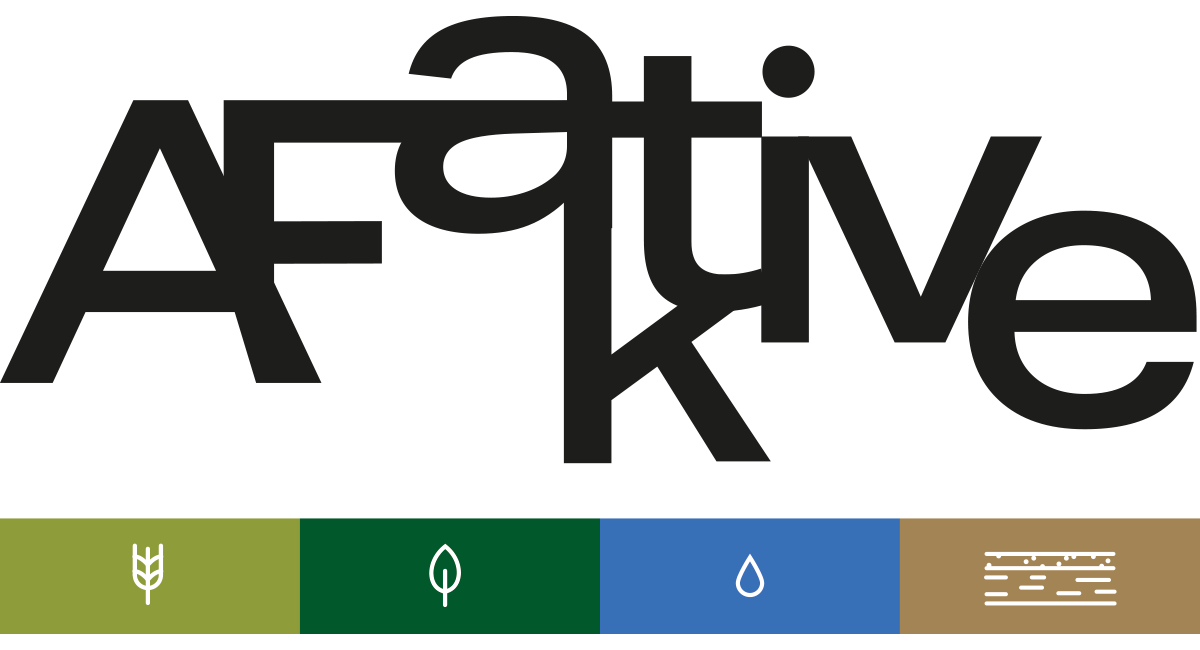Last week, the third AFaktive annual partner meeting took place in Holland. The partners met at the premises of the partner Royal Eijkelkamp, a Dutch company producing sensors for the monitoring of the AFaktive agroforestry sites. This very topic was also at the core of the discussions among partners, not only with regard to the installation of the sensors, which include soil humidity sensors, penetrologgers and weather stations, but also concerning the related data portal.
During the meeting, the partners discussed the achievements of the projects so far – such as the establishment of the agroforestry sites in the three countries of the project (Germany, Holland and Belgium) and the positive evaluation of the progress report by the EU funding authority – but also the next steps. On one thing all partners agreed, the project needs to remain close to practice and to practitioners. All project activities and results, including the monitoring and research on soil and water at the agroforestry sites, must serve the goal of facilitating the adoption of agroforestry as a water management approach for and by farmers, i.e. the most important target group of the project. To this end for instance, a modelling tool on the simulation of (extreme) weather events will be expanded based on the data collected by the project sensors and elaborated by the AFaktive team.
The meeting programme also included the visits of two Dutch project farms, De Hofkamer and Het Diessens Broek. The AFaktive team was very impressed and inspired by the commitment of these farmers. Some project measures have already been implemented; others are in the pipeline. Though AFaktive, the project team and the farmers hope to improve the water management of these farms in terms of erosion control and water retention (De Hofkamer is for instance located on a slope) but also to integrate agroforestry with other practices such as animal husbandry like at Diessens Broek.
Among the upcoming activities are the development of agroforestry at regional level as well as capacity building for different stakeholders, which entails the involvement of municipalities and water authorities among others. The policy aspect is also part of the AFaktive project. For this, the consortium decided on a bottom-up approach, considering it to be the most suited for the project goals and in terms of feasibility. The meeting was very successful, both in terms of operational exchange among partners and concerning motivation and enthusiasm to continue the project and to contribute to making agroforestry an accessible approach for improved water management.
